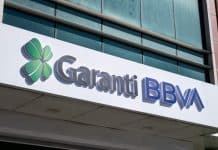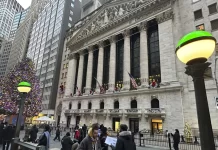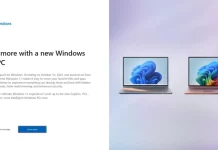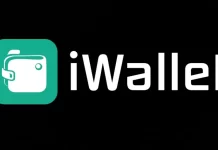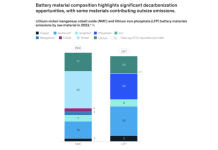
It’s easy to find stocks to hate on Wall Street, but sometimes it pays to take a closer look and find unloved stocks that have redeeming qualities. Right now, investors hate retail landlord Tanger Factory Outlet Centers (NYSE: SKT) and energy services company Helmerich & Payne (NYSE: HP).
There are some good reasons for this, but there are also some good reasons to buck the crowd and consider buying these hated dividend stocks now — before the market catches on to the fact that the future is brighter than it seems today. Here’s what you need to know.
1. A differentiated mall owner
Tanger owns 40 upscale outlet centers. It normally gets lumped in with real estate investment trusts (REITs) that own enclosed malls, which are facing hard times. But outlets are a different beast. Outlet centers are outdoor structures with uniform spaces, which makes them cheaper to operate and easier to update for new tenants. And they don’t have anchor stores, which is where a great deal of the pain is being felt at enclosed malls because of the overhyped retail apocalypse.
That’s not to suggest that Tanger isn’t feeling the pinch as the retail sector adjusts to new shopping trends (notably, online shopping). Occupancy has fallen from nearly 100% in 2013 to something in the 95% area today. That’s being driven by store closures, as apparel companies pull back or go bankrupt. However, the company’s average rents have remained fairly stable, and outlet-center traffic has been reasonably strong.
The real problem is the timing mismatch between Tanger losing a tenant and finding a new one. That simply doesn’t happen overnight. And while the REIT is looking for a new tenant, it has to work with existing tenants to keep occupancy as high as possible. That usually means rent concessions. Tanger has worked through periods like this before, though generally, they occur during recessions. Transition periods hurt — but they eventually pass.
What really sets Tanger apart, however, is its financial strength:
- It has an investment-grade balance sheet.
- Only 6% of its portfolio has mortgage debt.
- Tanger has access to 97% of a $600 million credit line.
- Total debt to adjusted assets is less than 50% (well below key debt covenants).
- The company can cover its interest expenses by more than five times.
It’s a financially strong company that should be able to weather the changes taking place in retail today.
But investors think just about anything tied to brick-and-mortar retail is trash. Therefore, this financially strong REIT with a differentiated business yields 8.8%, despite dividend increases every year since it came public (roughly 26 years ago). If you can look past the retail apocalypse to a future where online and physical retail peacefully coexist, then Tanger, with its rock-solid balance sheet, looks like a screaming buy today.
2. Leading the drill squad
Helmerich & Payne is a drilling-services company that builds, leases out, and operates high-tech drilling rigs for oil companies. It’s a highly cyclical business, where oil prices hold a huge amount of sway over demand. Today, oil prices aren’t high enough for huge industrywide spending sprees, and that’s left demand relatively weak. Only 62% of Helmerich’s portfolio of rigs is in the field. That’s why investors have kept a lid on the shares, with the yield up at 5.5%.
But a deeper dive shows there’s more to the Helmerich & Payne story than this. For example, long-term debt is just 10% of the capital structure. That’s the lowest level in its peer group and positions the services company well to survive through bad markets. A conservative financial approach also helps explain how the company has managed to increase its dividend annually for an incredible 46 consecutive years.
There’s another little twist here, though. Helmerich & Payne has long focused on being at the leading edge on the technology side. When you look at its fleet of drill rigs in the U.S. onshore market (roughly 90% of its portfolio), there are two categories. Fully 90% of its most advanced rigs (65% of its onshore fleet) are in the field — its less advanced rigs are the ones not getting much use.
In fact, the drilling services company has actually gained around 5 percentage points of market share since the last downturn — more than any of its peers — because of its focus on owning industry-leading equipment. It’s working to upgrade as many of its remaining rigs as possible. In other words, it’s doing quite well when you dig into the story a little bit.
That helps explain why Helmerich & Payne is beating market expectations today. When times are tough, investors watching this cyclical space question Helmerich’s ability to sustain its dividend. That’s not unreasonable. However, the company has proven it’s dedicated to the payout, has low leverage, a strong business model, and is well-positioned in a key market today. If you can look past the broader market worries and appreciate the inherent strengths of Helmerich & Payne’s underlying business, it looks like a bargain right now.
Risk and reward
Stocks don’t become unloved on Wall Street because they’re hitting on all cylinders. Investors usually hate stocks for very good reasons. The problem is that good companies often get lumped in with bad ones when the market gets turned off to a sector. That’s what looks like is happening today with retail landlord Tanger and energy services provider Helmerich & Payne.
If you’re willing to do a deep dive and see how they’re different from peers, however, you might find that they make compelling additions to your income portfolio today.


